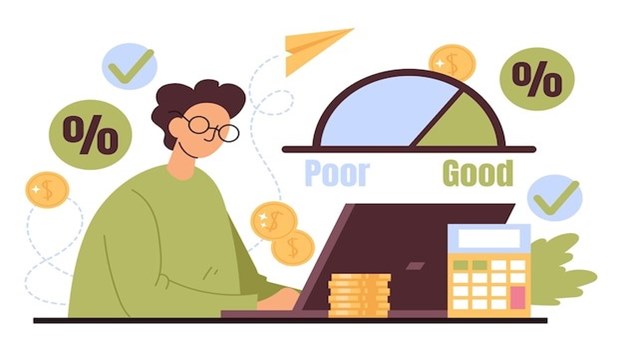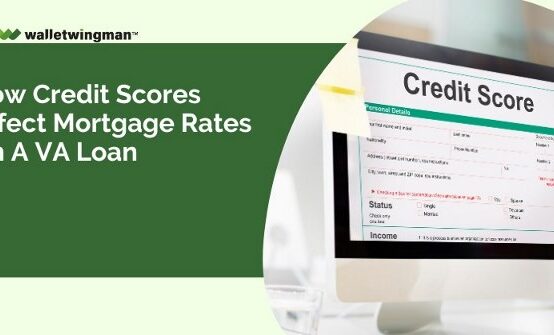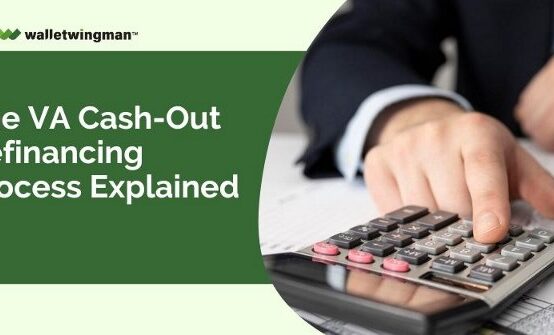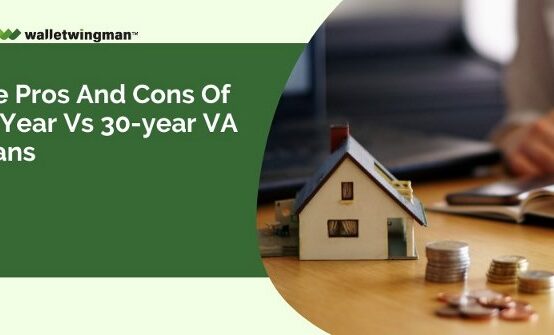Of all the VA loans questions people ask about the VA home loan program, one question tends to arise: How much can I borrow when utilizing a VA loan to buy a house?
There is no standardized answer to this question because every borrower is different. Individual home buyers qualify for various loan amounts based on their income (primarily) along with their recurring debts.
To determine the amount you can borrow, mortgage lenders look at everything from your credit score to your employment history.
Here’s the short version: A VA loan is based on a borrower’s income and debt ratio; the lender will use this information to calculate the maximum loan amount. In addition to your other recurring obligations, the aim is to make sure you can afford the monthly payments.
No Specific Income Requirement for VA Loans

When we create our VA loan guides, we often refer to the official guidelines published by the Department of Veterans Affairs. Most of the specific VA loan requirements can be found in VA Pamphlet 26-7, also known as the Lender’s Handbook.
However, you might be surprised to learn that the official VA loan handbook doesn’t specify any income limits for borrowers who use this program.
As it states on the VA.gov website:
“The VA-backed home loan limit refers to the amount we’ll guarantee (the maximum amount we’ll pay your lender if you default on your loan). We don’t limit how much you can borrow to finance a home.”
Although the maximum amount you may borrow with a VA loan is not limited, the Department of Veterans Affairs does provide mortgage lenders with some parameters. Based on an applicant’s income and debt, these rules assist lenders in determining the maximum amount that can be loaned.
VA Loan Limits: No Longer Capped for Most Borrowers

In the past, the VA set loan ceilings that placed a maximum on the amount of cash that the veteran could borrow without a VA loan down payment. However, as the next section will attempt to show, much has changed.
Due to the Blue Water Navy Vietnam Veterans Act signed into effect on January 1, 2020, VA loan limits are unavailable to borrowers with full entitlement. This means that any veteran with a certificate of eligibility VA can now borrow up to the amount for which a lender wants to fund them without a down payment in case they have full VA entitlement.
Full Entitlement vs. Partial Entitlement
To understand borrowing capacity, it’s crucial to distinguish between full and partial entitlement.
Full Entitlement: For fully entitled veterans, the amount of the loan does not have an upper limit, and therefore, a veteran can purchase an expensive home without making any down payment. Full entitlement typically applies to any first-time VA loan user or a user who has fully paid off the prior VA land loan and has sold the property.
Partial Entitlement: The VA jumbo loan limit may apply to several categories of veterans, including those who still have an active VA loan or have a previous defaulted loan but are still partially entitled to VA funding.
If a borrower has a partial entitlement, the loan amount without requiring a down payment depends on the Federal Housing Finance Agency’s conforming loan limits. The limit for 2023 is $726,200 in most states, but it can be higher depending on some counties with higher costs.
How Lenders Decide How Much You Can Borrow

Mortgage lenders take a formulaic approach to determine how much a person can borrow when using a VA-guaranteed mortgage loan. Two of the most critical factors in this “equation” are the debt-to-income (DTI) ratio and residual income.
Your monthly payment amount for recurrent debts is displayed by your debt-to-income ratio (DTI). In this context, we’re talking about your combined debts, such as a car payment, credit card bills, and the estimated mortgage payment.
The VA sets a “soft” limit of 41% for the debt-to-income ratio. They advise mortgage lenders to cap the DTI ratio at 41% for most borrowers. However, lenders can also make exceptions for borrowers otherwise well-qualified for a loan. Some people can get through VA loan qualifications for a VA loan with a DTI ratio as high as 50%.
Additionally, after paying off their previous bills and their mortgage, borrowers must have some remaining income every month in order to comply with VA regulations. This financial protection measure helps prevent homeowners from experiencing financial hardship.
The residual income required can vary depending on location and family size. You can refer to our residual income breakdown to learn more about the subject.
Pre-Approval Can Identify Your Maximum Loan Amount

The best way to determine how much you can borrow with a VA loan is to get pre-approved by a mortgage lender that offers these loans. Pre-approval offers other benefits as well, as you will soon see.
Mortgage pre-approval is a kind of financial screening or vetting process. During this process, your lender will review your financial situation, including your credit score, income level, assets, and recurring debts.
Their determination of the maximum loan amount for a VA-guaranteed mortgage will be based on this study. The lender will also analyze those two critical factors mentioned earlier: residual income and the debt-to-income ratio.
It’s called “pre” approval because it happens before you find a real estate agent or shop for a home. This is the best way to approach home-buying because it allows you to determine a specific price range based on your financing capacity.
Without getting pre-approved, you could waste precious time looking at homes that exceed the amount you can borrow.
Having a VA loan pre approval letter from a mortgage lender could also make sellers more inclined to accept your offer since you’ve been thoroughly screened and vetted.
Factors Influencing Borrowing Power
The VA does not limit the VA loan benefits for a qualified full entitlement, though other factors affect the amount of money one qualifies to borrow. These include:
Credit Score: While the VA does not specify the minimum credit score a borrower must possess, most lenders may require a score of 620 and above. The reason for this is that a higher credit score is linked to greater loan ceilings and better-quality loans.
Debt-to-Income (DTI) Ratio: The ability of borrowers to repay loans is assessed by banks using their DTI ratios. A lower DTI ratio reflects better debt and income analysis and may result in the approval of a larger loan. In most cases, a permissible DTI ratio cannot exceed 41%; however, some exceptions enable specific ratios with other adjustments.
Residual Income: The VA prescribes an expected residual income level to ensure borrowers have some cash left over for emergencies after paying all monthly bills. Depending on the loan amount, size of the family, and location, this requirement is different.
Income and Employment History: Stable and guaranteed income is essential. In most cases, lenders expect every borrower to earn a steady income, and they search for employment stability for not less than two years. The self-employed may require further documents to support this declaration.
Property Appraisal: Before purchasing any property, certain VA loan property requirements must be met. The property will then undergo a valuation exercise to establish its current market value. It’s important to note that the loan amount cannot exceed the property’s value as appraised, so you must set clear financial boundaries and ensure your security.
Establishing a Housing Budget for Yourself
A mortgage lender can tell you how much you can borrow with a VA home loan or VA construction loan. But they cannot tell you whether or not you’re comfortable taking on that amount of debt. You’ll want to determine this on your own through a personal budgeting process.
From a borrower’s perspective, the best-case scenario is to have a maximum housing payment in mind before you even start talking to mortgage lenders. This number represents the most you are comfortable spending monthly on your housing costs while considering your other debts and financial goals.
Read our article on VA loan preparation to learn more about budgeting. We highly encourage you to read that guide if you plan to use a VA loan to buy a home soon. It will help you enter that process with the correct information, knowledge, and mindset.
The bottom line: The best way to determine how much you can borrow is by getting pre-approved for a VA loan. Mortgage calculators and online estimators don’t have enough information to give you a precise borrowing limit. Only a mortgage lender can do that, and it will primarily be based on your debt-to-income ratio.


 A Borrower’s Guide to the VA Construction Loan
A Borrower’s Guide to the VA Construction Loan  How to Buy a Condo Unit with a VA Mortgage Loan
How to Buy a Condo Unit with a VA Mortgage Loan  How Credit Scores Affect Mortgage Rates on a VA Loan
How Credit Scores Affect Mortgage Rates on a VA Loan  The VA Cash-Out Refinancing Process Explained
The VA Cash-Out Refinancing Process Explained  The Pros and Cons of 15-Year vs 30-year VA loans
The Pros and Cons of 15-Year vs 30-year VA loans  10 Important Quotes from the Official VA Loan Buyer’s Guide
10 Important Quotes from the Official VA Loan Buyer’s Guide 